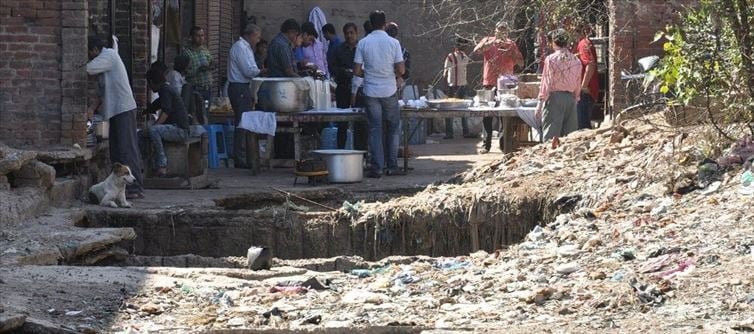
One thing I hear over and over is that the government is to blame because it doesn't properly manage garbage, collect it, or maintain the infrastructure. That is undoubtedly the case in many areas of india, but I believe that the attitude that "the government is to blame, not the people" is equally accountable for the country's environmental destruction.
According to my observations, it is rather socially acceptable to toss any kind of trash onto the streets in many places in India. It's unlikely that anyone will give you a second glance, much less say anything. Anything that is not your home is no longer your surroundings; it does not belong to you, therefore you are free to harm it any way you choose and deteriorate it to the point of your desire. This is truly mind-blowing for a nation and culture that prides itself so much on its community bonds.
Furthermore, pollution in india encompasses much more than just the trash that ends up on the streets. It also includes the air, chemical waste, dead rivers (yeah, Ganga, you're not exactly treated like a mother), farmland, and, of course, the cities, which are always buzzing with noise pollution.
A brighter future ahead?
The Swacch Bharat campaign, also known as Clean india, has received a lot of media attention since narendra Modi's bjp government took office in 2014. A 0.5% dedicated tax was implemented in november 2015, impacting all services provided in India. Its proceeds are to be utilized only to clean up the nation's environmental conditions.
Either that, or it was worse before, or there hasn't been any noticeable change in the places I've been as of yet. In any event, I genuinely hope that improvement is achieved in the future and that travelers to india may concentrate on its other features, many of which are worthwhile seeing and experiencing. Up until then, "Incredibly Dirty India" might serve as the nation's tourist tagline. So put down that bleak future book and come witness a massive environmental catastrophe occurring right now.
According to my observations, it is rather socially acceptable to toss any kind of trash onto the streets in many places in India. It's unlikely that anyone will give you a second glance, much less say anything. Anything that is not your home is no longer your surroundings; it does not belong to you, therefore you are free to harm it any way you choose and deteriorate it to the point of your desire. This is truly mind-blowing for a nation and culture that prides itself so much on its community bonds.
Furthermore, pollution in india encompasses much more than just the trash that ends up on the streets. It also includes the air, chemical waste, dead rivers (yeah, Ganga, you're not exactly treated like a mother), farmland, and, of course, the cities, which are always buzzing with noise pollution.
A brighter future ahead?
The Swacch Bharat campaign, also known as Clean india, has received a lot of media attention since narendra Modi's bjp government took office in 2014. A 0.5% dedicated tax was implemented in november 2015, impacting all services provided in India. Its proceeds are to be utilized only to clean up the nation's environmental conditions.
Either that, or it was worse before, or there hasn't been any noticeable change in the places I've been as of yet. In any event, I genuinely hope that improvement is achieved in the future and that travelers to india may concentrate on its other features, many of which are worthwhile seeing and experiencing. Up until then, "Incredibly Dirty India" might serve as the nation's tourist tagline. So put down that bleak future book and come witness a massive environmental catastrophe occurring right now.




 click and follow Indiaherald WhatsApp channel
click and follow Indiaherald WhatsApp channel